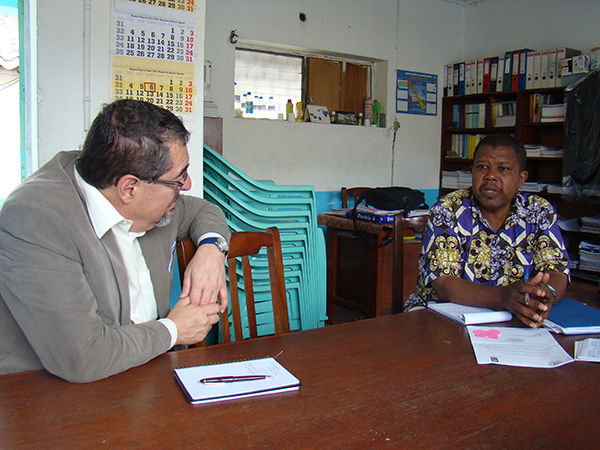Call for applications: Effective Advising in Peacebuilding Contexts

Countries that emerge from periods of violence or are undergoing complex and profound governance changes often need to rebuild or reform their public sector institutions and the governance relationship between state authorities and citizens. National and international experts/ advisers seek to support these public authorities and other actors, on policy formulation and implementation. Yet reviews of decades of technical assistance show that the expertise provided is not always producing the desired results.
This course seeks to better equip advisers by honing essential interactional and advisory skills, and by offering frameworks and guidance on how to understand and navigate the broader institutional environment and change processes they find themselves in. It creates a space for exchange and learning on the practice of advising from resource people and between participants.
Peacebuilding will not be taught during this course. Rather, it is the participants' expertise, the case studies and exercises that will reflect the real-life challenges of peacebuilding work.
Who is this course for?
This course is relevant if you:
- Are an international or national expert, civilian or uniformed personnel;
- Have a job wherein advising is a major focus;
- Are working with or for national public sector entities;
- Already have some experience, and are currently deployed or about to be redeployed/ reassigned to such a role;
- Have a strong command of the English language.
Main topics of the course:
- Becoming an effective and trusted adviser: the variety of advisory roles and the potential for development;
- Building rapport: Effective communication and managing relationships;
- Understanding capacity and capacity-development strategies;
- Advising effectively across cultures;
- Mentoring, Monitoring and Advising: The approach of the EU and the UN;
- Inclusive governance: multi-stakeholder processes and public participation.
At the end of this course participants will be able to:
- Understand the key elements and dimensions of being an advisor and working in complex settings with local partners;
- Assess some of their personal inclinations, reflexes and interpersonal skills that are central to effective advising;
- Analyze their own working challenges;
- Apply key analytical and methodological frameworks for capacity, change and inclusive governance to their own cases;
- Consciously shape their mode of working as an advisor in the future.
Methodology
The course is geared towards adult learning and uses participatory approaches. It provides a number of carefully selected frameworks and methodologies that advisers can apply to a variety of case studies and realities, in order to better understand and handle the challenges they are confronted with. Next to content inputs, the course works with the participants' own real-life challenges and experience. In addition, they will take part in various exercises which will deepen self-awareness and skill development, complemented by groupwork and exercises.
Application, process and costs
There will be a maximum of twenty participants. Interested individuals are requested to apply, using the application form that can be downloaded from www.ipat-interpeace.org or requested from the course coordinator. Selection will be based on the general participant criteria outlined above, the personal case study found in the application form and so as to have a balance between men and women and uniformed and civilian participants.
There is no course fee and residential expenses of food and accomodation are covered. Participants are responsible for their travel to and from the course venue and possible visa application fees. Health insurance that covers Switzerland is strongly advised.
The course is in English. Translation cannot be provided.
When and where?
The course starts at midday on Monday 22 August, and finishes at midday on Tuesday 30 August. Saturday 27 August will be a day off.
The course takes place at the Chateau de Bossey, some 20km east of Geneva, Switzerland.
Download the application form here.
For more information contact: effectiveadvising@interpeace.org

